7 “Iron-Rich” Fruits That Don’t Deliver And 9 That Actually Boost Your Levels Naturally
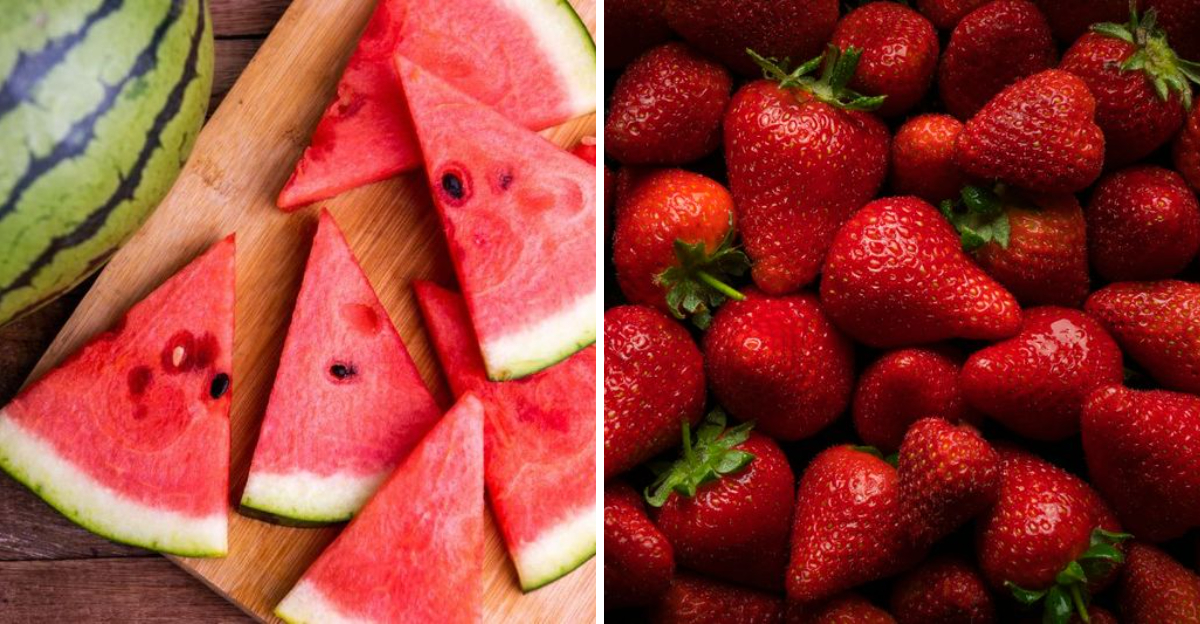
Iron is essential for energy, focus, and overall health—but not all “iron-rich” fruits are created equal. Some are mistakenly hyped up for their iron content when they barely move the needle, while others quietly pack a punch—especially when paired with vitamin C for better absorption. Here are 7 fruits that fall short in the iron department, and 9 that can actually help support healthy iron levels naturally.
1. Apples
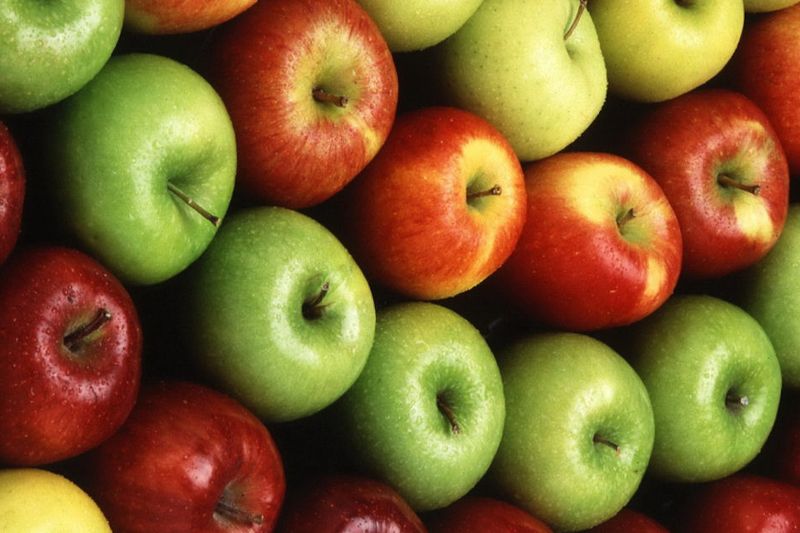
Apples, with their crisp texture and refreshing taste, are often lauded for various health benefits. However, when it comes to iron, they don’t make the grade. A medium-sized apple contains less than 0.2 mg of iron, making them a better source of fiber than iron. Despite their low iron, apples are loved for their versatility and are a fantastic source of dietary fiber, promoting healthy digestion. So, while they may not boost your iron levels, they certainly contribute to your overall wellness in other ways.
2. Bananas
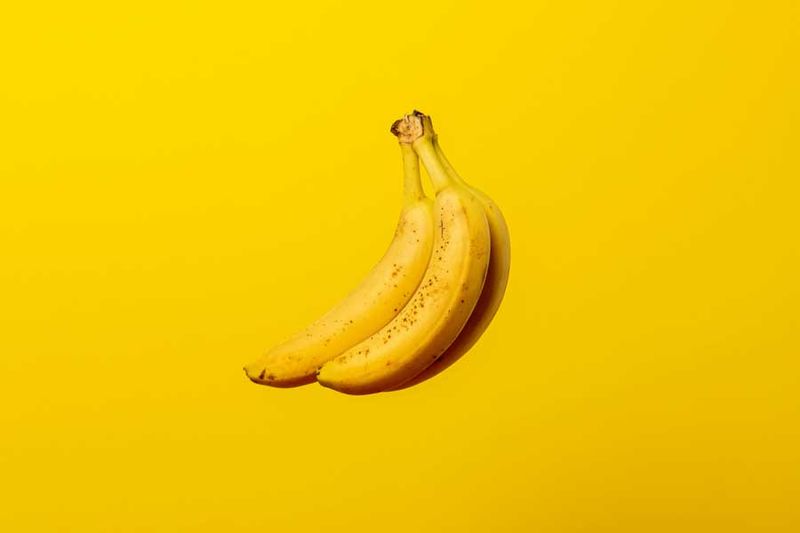
Bananas, known for their creamy texture and sweet flavor, are a staple in many diets. Though they are excellent for boosting potassium, their iron content is quite low. A single banana offers less than 0.4 mg of iron. This tropical fruit is favored for its energy-boosting properties and ability to satisfy sweet cravings naturally. While bananas won’t significantly improve your iron levels, they do provide an abundance of other nutrients, making them a valuable addition to your diet.
3. Watermelon
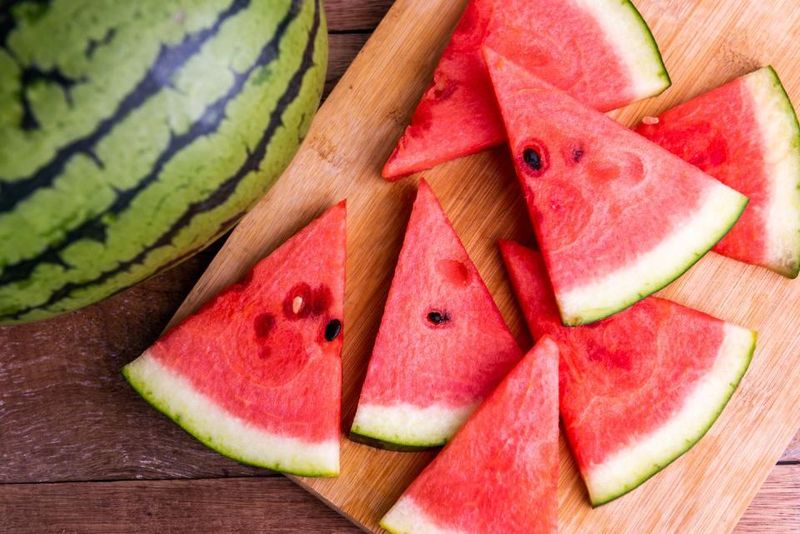
Watermelon, the quintessential summer fruit, is perfect for hydration due to its high water content. However, when it comes to iron, it falls short, contributing minimally. Despite common myths suggesting otherwise, a full cup of watermelon contains negligible iron. Its vibrant color and sweet taste make it a favorite at picnics and gatherings, loved for refreshment rather than nutritional iron. While it may not elevate your iron levels, it surely beats the heat and keeps you hydrated.
4. Grapes
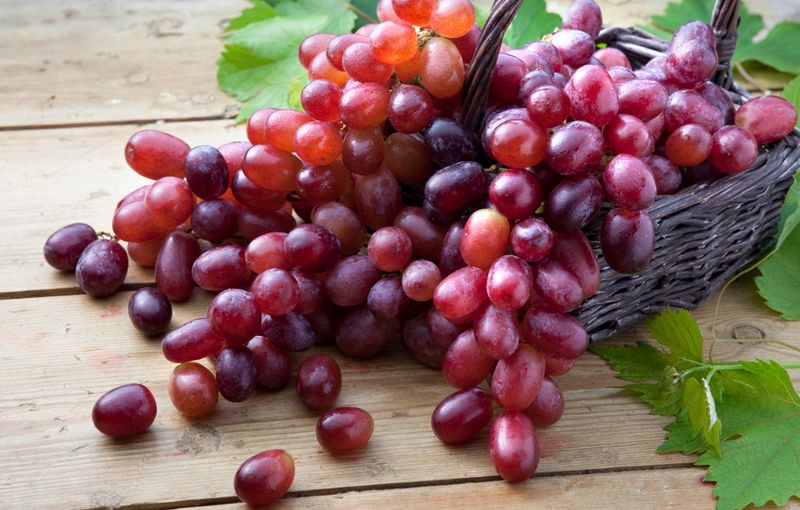
Grapes, whether red or green, are often enjoyed for their juicy sweetness and as a convenient snack. Yet, in terms of iron content, they’re underwhelming, offering less than 0.3 mg per cup. These little fruit gems are better known for their antioxidant properties, aiding overall health more than iron intake. While grapes won’t significantly boost iron levels, they remain a beloved fruit for their versatility in both sweet and savory dishes, adding flavor and a burst of juiciness.
5. Strawberries
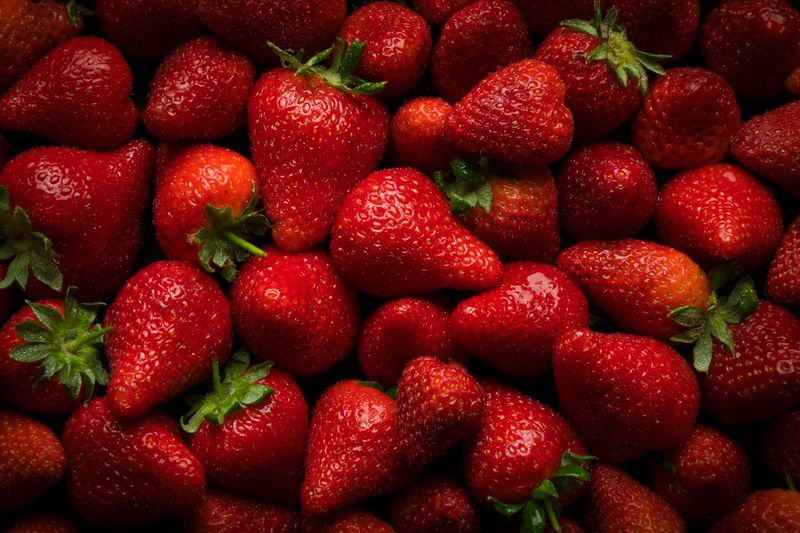
Strawberries, with their vivid red hue and sweet aroma, are a favorite in desserts and snacks. Though they contain a small amount of iron, just around 0.6 mg per cup, they shine more in their vitamin C content. This vitamin helps in iron absorption when consumed with iron-rich foods. While strawberries may not be a significant source of iron, they can enhance the absorption of iron from other foods, thus supporting your diet indirectly by boosting nutrient uptake.
6. Oranges
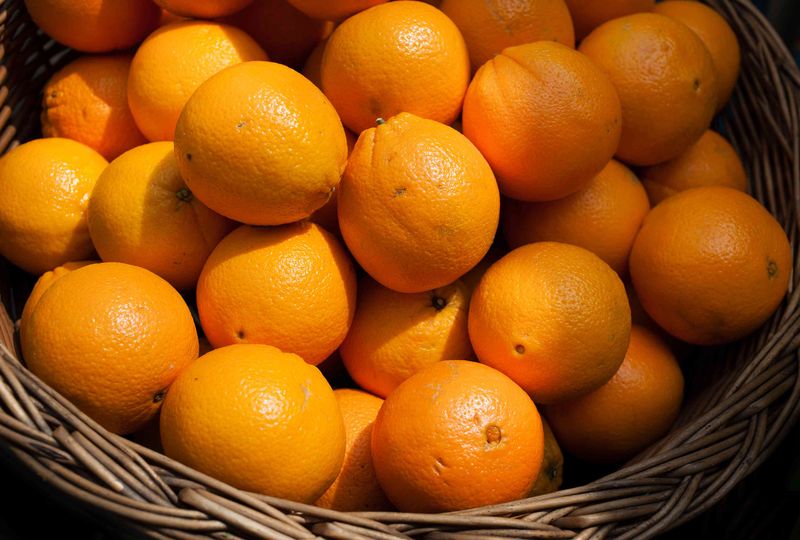
Oranges are synonymous with vitamin C, famous for boosting the immune system. Ironically, their own iron content is quite low, at about 0.1 mg per medium fruit. Despite this, their high vitamin C levels make them excellent companions for iron-rich foods, aiding absorption. Oranges are not just for eating; their juice is a staple in breakfasts worldwide, providing a refreshing start to the day without elevating iron levels significantly.
7. Pineapple
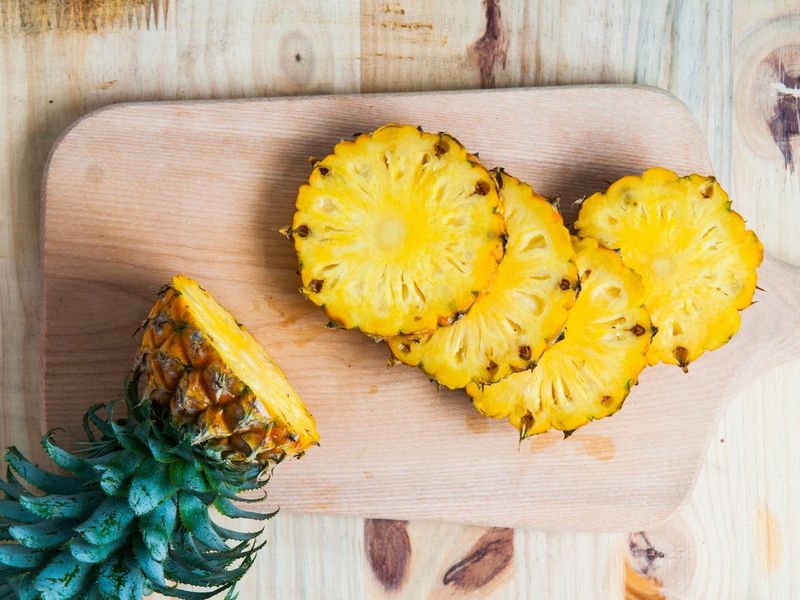
Pineapples, with their tropical allure and sweet-tart flavor, are praised for their digestive benefits, thanks to enzymes like bromelain. Despite their nutritional richness, they contain less than 0.3 mg of iron per cup, making them a poor iron source. However, their vitamin C content helps enhance iron absorption from other foods. Pineapples can be enjoyed fresh, juiced, or as part of savory dishes, bringing a tropical twist without significantly impacting iron levels.
8. Dried Apricots
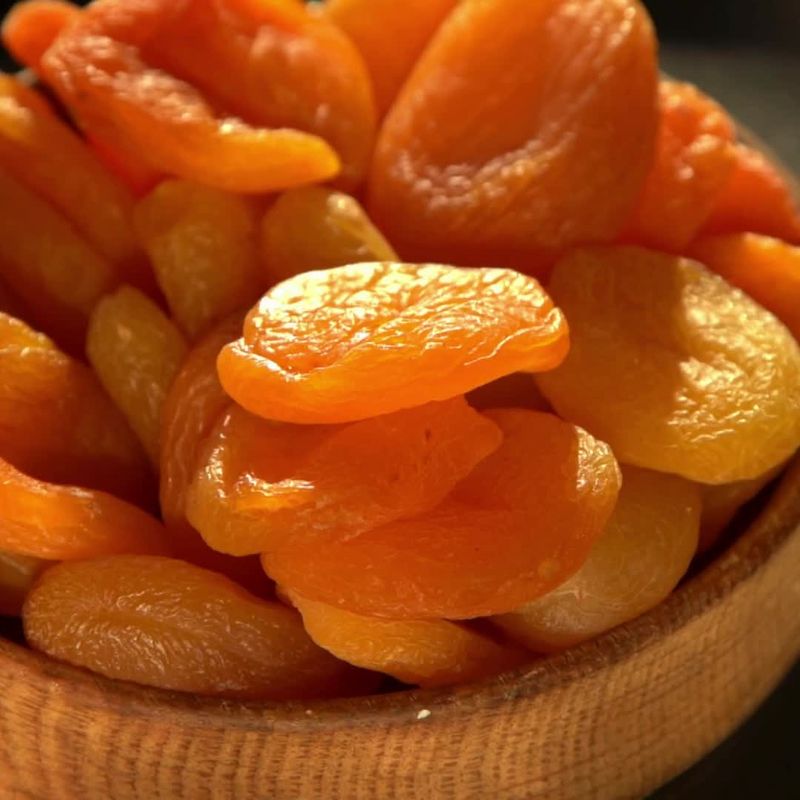
Dried apricots are small, chewy delights packed with flavor and nutrients. Unlike many fruits, they offer a substantial amount of iron—about 3.5 mg per cup—making them an excellent choice for those looking to boost iron levels. Their rich, tangy taste complements both sweet and savory dishes, or they can be eaten alone as a healthy snack. The drying process concentrates their nutrients, enhancing their iron provision. These nutritious gems are a powerful ally for maintaining healthy iron levels.
9. Prunes (Dried Plums)
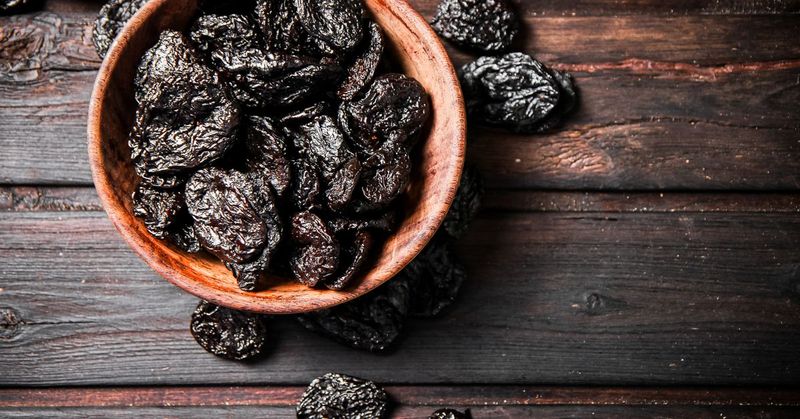
Prunes, the dried version of plums, are well-known for their digestive benefits. Rich in iron, they provide about 0.9 mg per five prunes, making them a beneficial addition to your diet. Their sweet, rich flavor pairs well with various dishes, and they’re often enjoyed as a natural remedy for constipation. Prunes not only contribute to iron intake but also offer fiber and other nutrients, supporting a balanced diet. Their reputation goes beyond taste, focusing on health and wellness.
10. Raisins
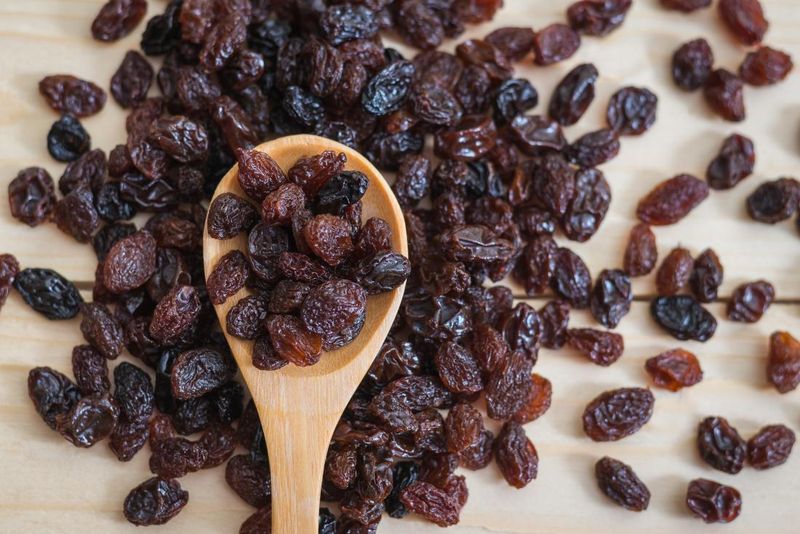
Raisins, those tiny, sweet morsels, pack a surprising punch in terms of iron content, providing about 3 mg per cup. They’re a convenient snack that can easily be added to cereals, salads, or trail mixes. Besides their iron richness, raisins offer energy and a dose of natural sweetness. Their versatility makes them a favorite among young and old alike, contributing to an iron-rich diet effortlessly. These humble dried fruits are a nutritional powerhouse, hidden in plain sight within your pantry.
11. Mulberries (Dried)
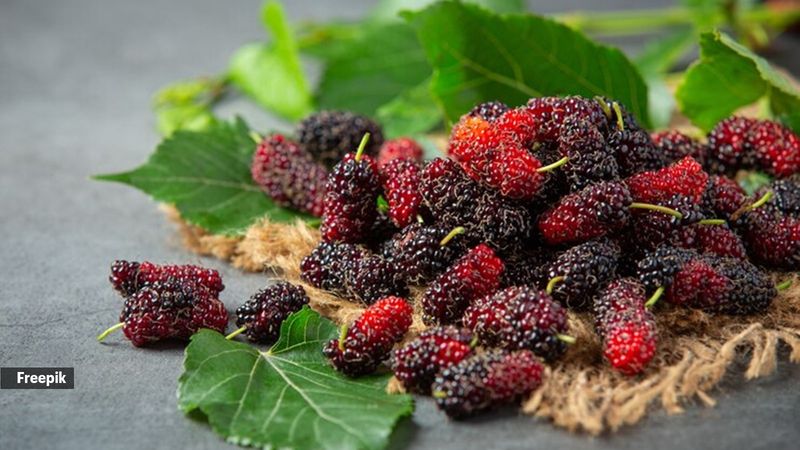
Dried mulberries might not be the first fruit you think of, but they are packed with iron—up to 2.6 mg per ¼ cup. These chewy, sweet berries are not only rich in iron but also loaded with antioxidants. Their unique taste makes them a delightful addition to breakfast cereals or baked goods. Dried mulberries are lesser-known gems in the fruit world, offering a nutritional boost to any diet. Their health benefits extend beyond iron, contributing to overall wellness and vitality.
12. Figs (Dried)
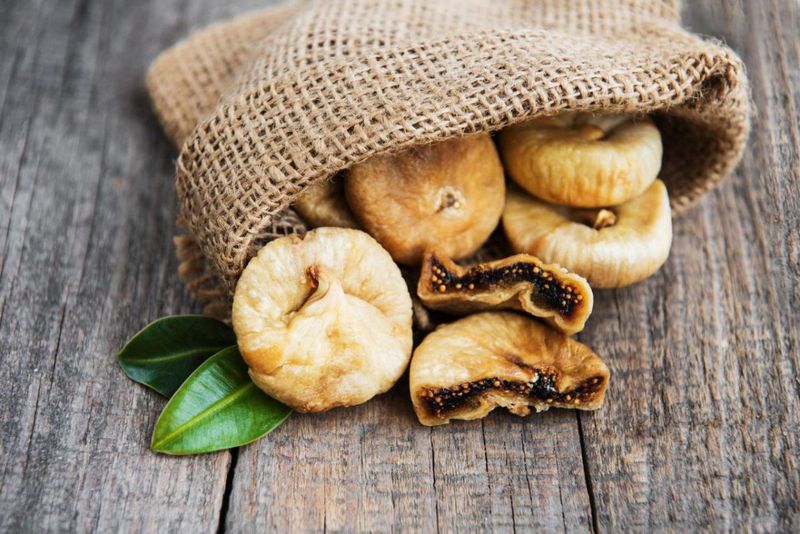
Dried figs are sweet, chewy, and full of nutrients, providing approximately 1.2 mg of iron per half-cup. These fruits are cherished for their unique taste and health benefits, especially their role in promoting digestive health. Figs can be enjoyed on their own or added to a variety of dishes, from savory to sweet. Their iron content makes them a valuable component of a balanced diet, helping to boost iron levels naturally. These fruits truly embody the phrase ‘good things come in small packages’.
13. Blackberries
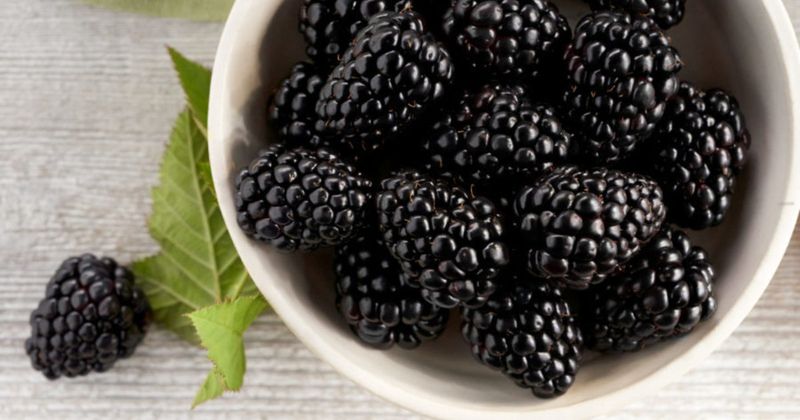
Blackberries might not be the first fruit that comes to mind when you think of iron-rich foods, but they surprise with their content—about 0.9 mg per cup. Their juicy, tart flavor makes them a delightful snack or addition to desserts and smoothies. Besides iron, blackberries are loaded with antioxidants and vitamin C, which aids in iron absorption. These berries not only contribute to iron intake but also support overall health, making them a delicious and beneficial choice for any diet.
14. Raspberries
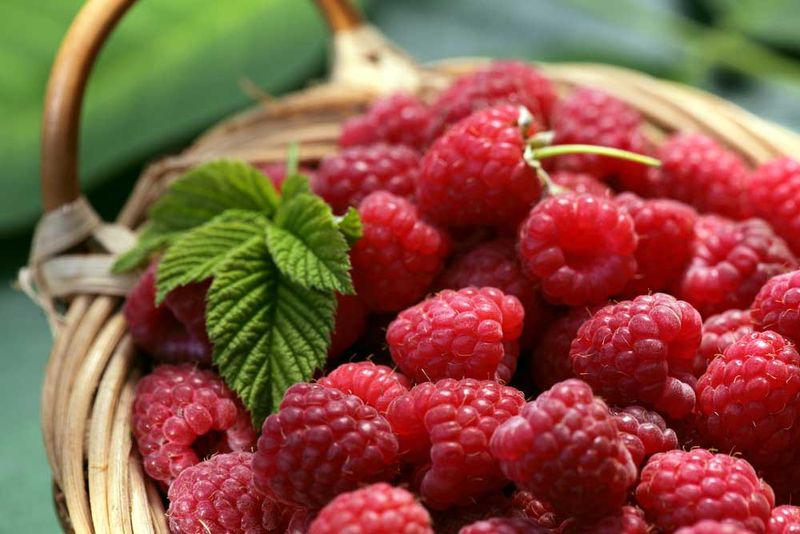
Raspberries, with their vibrant red color and subtle sweetness, provide around 0.8 mg of iron per cup. They offer a delightful mix of flavor and nutrition, making them a popular choice for snacking and dessert toppings. The vitamin C in raspberries helps enhance iron absorption, supporting your dietary needs. These berries are not just about taste; they contribute to a healthier lifestyle by providing essential nutrients. Their presence in any dish adds both visual appeal and nutritional value.
15. Dates
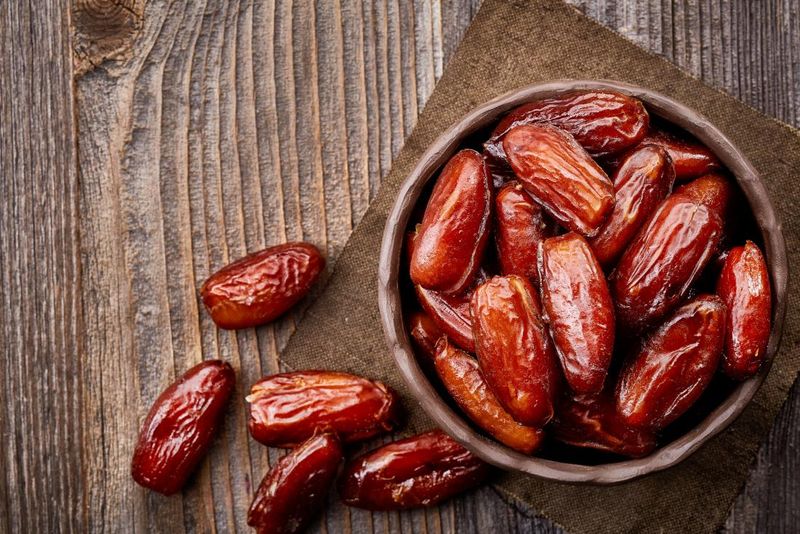
Dates, known for their rich sweetness, provide nearly 0.9 mg of iron for just three dates. They are a staple in many Middle Eastern cuisines and loved for their natural energy-boosting properties. Dates are versatile, enjoyed on their own or added to smoothies and baked goods. Their iron content, along with other essential nutrients, makes them a valuable addition to a balanced diet. These fruits are not only delicious but play a significant role in supporting overall health and vitality.
16. Acai Berries (Frozen or Powdered)
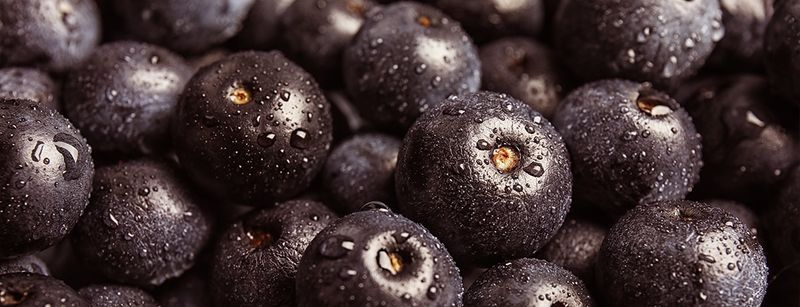
Acai berries have gained popularity for their numerous health benefits, including their iron content—about 1.1 mg per 100g puree. They’re renowned for their rich antioxidant levels and healthy fats. Whether enjoyed as a smoothie bowl or in powdered form, acai berries offer a unique taste and nutritional boost. These berries not only support iron levels but also contribute to overall wellness. Their exotic flavor and health benefits make them a trendy choice for health-conscious individuals.
